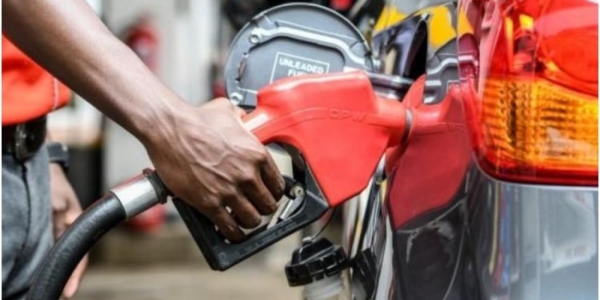•Marketers blame policy inconsistency for shortages ...Motorists sleep at filling stations
Fuel scarcity: NSCDC to shut down defaulting stations in Ekiti Monday
The lingering fuel shortages across the country appear to have defied all solutions as filling stations across the country continue to battle acute shortages.
The horror has shot up petrol prices to an all-time high of N990/litre in Abuja and as high as N1,200/litre in far-flung cities up north.
The frustrating development has forced motorists to sleep in filling stations, especially those belonging to NNPC Ltd to get petrol.
The situation has been exasperated by the silence of various government agencies responsible for smooth supply and sale of petroleum products.
In Lagos, most of the filling stations, especially those operated by independent marketers are out of stock with major marketers and NNPC battling to salvage the situation with minimal supplies.
At the weekend most filling stations were shut with only a few majors selling, thereby compounding the traffic situation across the metropolis.
In Ikeja, Abule-Egba, Ojota, Ikorodu, Isolo and Surulere, Ikoyi mand Victoria Island, the situation is the same.
In Abuja, motorists complained that a liter of petrol had hit about N990 with Point of Sale (PoS) operators making brisk business by making a premium from withdrawals to buy the fuel.
Commenting on the development, National Operations Controller, IPMAN, Mr. Zarama Mustapha, said policy inconsistency remained the major reason for the frequent fuel shortages.
Mustapha, said when the Petroleum Industry Act (PIA) became a law, industry observers believed that would bring about a permanent solution to the challenges in the sector.
Regetably, he said the PIA Has not addressed the problems in the downstream sector as the country continues to battle with fuel shortages.
The major problem about the unabated fuel scarcity is mainly about foreign exchange which is very unstable and makes it less lucrative for any marketer to import.
‘‘When the President announced an end to subsidies, marketers were happy, believing they could return to imports of products. At that time, the exchange rate was N720 per litre. Along the line, the Government floated the naira, and the exchange rate hit N1550.
Today, the landing cost of petrol is N1,200 while product at NNPC retail outlets is sold for N568, that means there is a subsidy of N632 being absorbed by the government.
“Now, we have a situation whereby people are calling for a return of subsidy, which will take fuel cost back to N200 per litre. If that happens, where will the government get the resources to absorb N1,000 per liter subsidy,’’?
The IPMAN boss said even though government is denying paying subsidy, the facts on the table lay bare to the fact that Government is still paying subsidy on petrol
He added that all the policy flip-flops through policy summersaults creates an uncertain business environment, leading to fuel shortages
He noted that the Federal Government last week said it was spending $600 million monthly on fuel imports.
‘‘How NNPC manages to sustain supply in the last 9 months or more is still a miracle because there is no budget for subsidy in 2024.
“You plan something and you expect things to go smoothly as planned with a good intention on the part of the Government but suddenly there are disruptions in the economy, an example is the FX crisis.
“The ultimate solution is for the refineries to function optimally but I don’t know what the contractors are doing because the timelines keep changing. NNPC has committed about $1.5 billion to revamp the old Port Harcourt refinery. Do we now terminate the contract,’’?
Some of the marketers at the Apapa depot who declined to be named said there has been a drastic drop in the level of vessels calling at the seaports.
The drop according to them was responsible for the shortfall in the supply of fuel as products had to be rationed.


